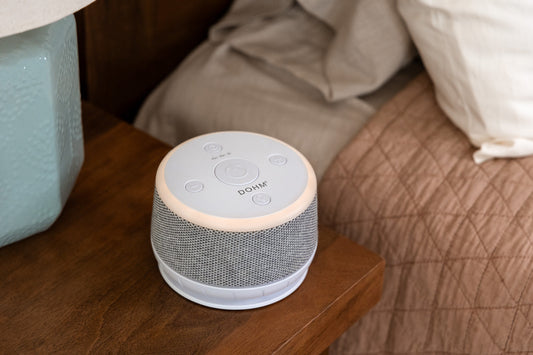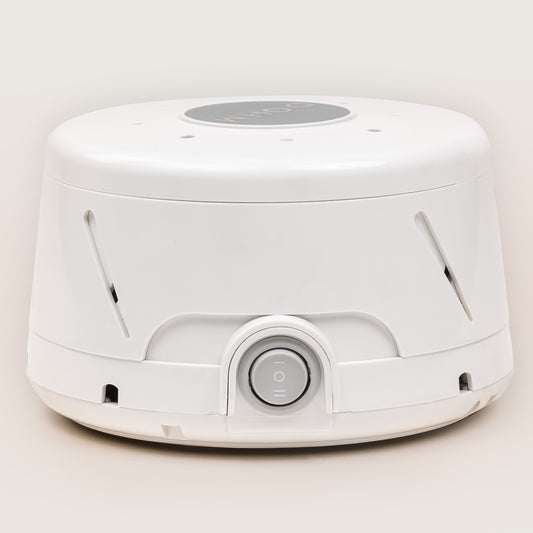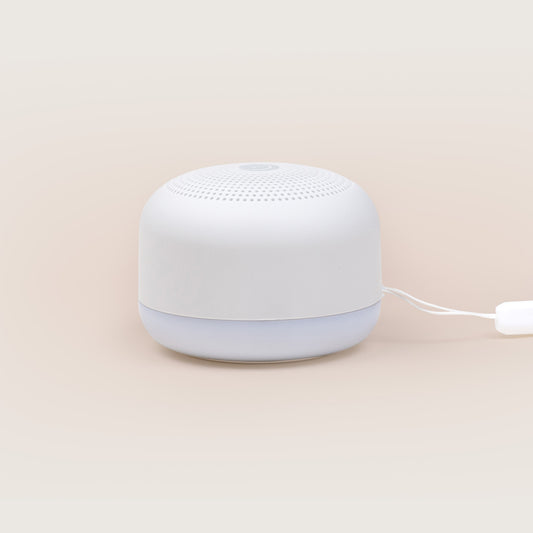
Goodnight, Sleep Tight: A Guide to Better Sleep for Toddlers (and Parents!)
As parents, we all want what's best for our children, especially when it comes to their sleep. A good night's rest is crucial for growth, development, and overall well-being.
But let's be real — bedtime with toddlers can feel like a never-ending cycle of meltdowns, storybooks, songs, and "just one more glass of water." And don't even get us started on those middle-of-the-night wake-ups!
Whether it's nightmares, potty training, or just getting out of bed too early, sleep hurdles can seem never-ending (and the coffee pot, never-empty).
You don't have to let sleepless nights take over your life. This guide is here to share practical tips and strategies for improving your little one's sleep. We'll cover everything from setting up a bedtime routine to dealing with nightmares. With these tips, you'll be well on your way to helping your tot get some seriously sweet dreams — and save yourself a little sanity in the process.
Why Sleep is Vital to Children's Health
Before we dive into how to help our children sleep, let's consider why it's so important. Sure, we all know how grumpy and moody both kids and parents can get after a rough night, but there's more to it than that.
Did you know that the National Sleep Foundation says sleep is crucial for children's health? There are many positive effects associated with a child's sleep, including:
- Stronger immune system: Enough sleep helps boost immunity, reducing the chances of our kids getting sick and promoting their overall health.
- Healthy growth and development: Sleep plays a vital role in promoting healthy growth and development in the early years.
- Better memory and learning:Sleep helps kids consolidate their memories, making it easier for them to retain new information and learn new skills.
- Improved mood and behavior: Sleep also helps with children's attitude, behavior, and ability to focus and pay attention.
But what happens when our kiddos aren't getting enough shut-eye?
The grumpy morning moods and meltdowns over the most minor things should be the least of our worries. Lack of sleep can have significant long-term impacts on children's physical and mental health, including:
- Attention problems:Research shows that poor sleep can affect attention and concentration, making children more likely to develop Attention Deficit Hyperactivity Disorder (ADHD) symptoms (and exacerbate them in children who already have an ADHD diagnosis).
- Impaired memory: Children need sleep to consolidate their memories. Learning and recalling are more challenging when they aren't getting enough sleep.
- Depressive disorders:Children who experience frequent nighttime awakenings and short sleep duration as toddlers are more likely to develop depression by the time they reach school age.
- Increased risk of obesity and diabetes: Many studies conclude that inadequate sleep is directly linked to weight gain and childhood obesity. There's also compelling evidence that short sleep duration significantly contributes to Type 2 Diabetes in children.
And the trouble doesn't end in grade school. Research directly links poor quality or short duration of sleep in early childhood to increased levels of depression, anxiety, and school-avoiding adolescent behaviors.
Sleep Schedules for Children Aged 2-7
It's clear that establishing good sleep habits is essential for our kids' health (and ours). But how do we get them to cooperate? The answer is surprisingly simple — a consistent schedule.
Maintaining a consistent sleep schedule, even on weekends, is essential to ensure our little ones get the rest they need. Easier said than done, right? We know! But establishing a regular bedtime and wake-up time helps our kids develop good sleeping habits.
So how much sleep do children need?Sleep guidelinesfrom the American Academy of Sleep Medicine (AASM) recommend the following amounts of sleep for children in 24 hours:
- Toddlers (ages 1–2): 11–14 hours (including naps)
- Preschoolers (ages 3–5): 10–13 hours (including naps, if necessary)
- School-aged children (ages 6–12): 9–12 hours (limit naps)
To ensure your child gets the rest they need, try to get as close to these numbers as possible.
Getting the recommended amount of shut-eye for our little ones sounds like a dream come true, but managing kids' sleep habits can be a nightmare. We know first-hand how quickly tempers can flare when a little one doesn't go to bed — or stay there.
Children of this age can experience a host of sleep struggles, leaving you with more questions than answers. To get you armed and ready, we've compiled a bedtime battle plan to tackle a few of the most common sleep struggles head-on:

- Fighting bedtime:Say goodbye to bedtime blues! Toddlers and young children often resist bedtime because of separation anxiety. They don't want to miss out on the fun! The solution? Establish a consistent bedtime routine, complete with quality time before lights out, like bedtime stories or lullabies. Let them get cozy with being alone in their beds too.
- Night wakings:The bane of every parent's existence. Toddlers, in particular, are prone to night wakings. You can help settle your child's body clock by setting a regular bedtime and waking schedule, so they expect to sleep at the same time every night. Also, keep up any nighttime rituals that help your child know when it is time to sleep (such as reading stories or singing lullabies).
- Nightmares:Bad dreams? No problem! You can help your child feel secure and safe after a nightmare by being present and calm. Show empathy for their fear and remind them that everyone has scary dreams sometimes. For preschoolers with vivid imaginations, a good hug (and some monster spray!) can make the imaginary monsters disappear. You can also try a night light and see if that helps ease their fears.
- Bedwetting:Potty training woes got you feeling drained? No need to let it disrupt your child's sleep. Limit fluid intake an hour or so before bed, and ensure they go to the bathroom before lying down. If your child is still having frequent accidents overnight, try gently rousing them for a quick potty trip before you go to bed, so they can hit the bathroom without fully waking up.
9 Sanity- Saving Tips for Better Toddler Sleep
Getting the scoop on how much zzz's our kids need and the benefits of a good night's rest is super helpful and all, but let's face it — getting them to actually SLEEP can be a whole other story.
To give you a hand with managing your little one's sleep habits, here are nine sanity-saving tips for better toddler sleep:
Tip #1: Keep evenings calm and peaceful.
After a busy day, giving your child a peaceful and calming environment to unwind is essential. Turn off the screens and opt for a relaxing activity, like reading a book or taking a bath, to help your child transition into sleep mode. You can also try turning on a white noise machine to help signal that it’s time to go to bed.
Tip #2: Say "night-night" to bedtime snacks.
While a bedtime snack can be tempting, eating too close to bedtime can upset your child's stomach and make it difficult for them to get a good night's rest. Aim to finish meals and snacks at least two hours before your child's bedtime to give their bodies enough time to digest.
Tip #3: Say "No" to caffeine and sugar before bed.
Caffeine and sugar can disrupt the natural sleep cycle, making it harder for your little one to get some zzzs. We know you're not giving Junior cups of coffee, but you'd be surprised where caffeine is hiding (like Cocoa Puffs and hot chocolate!) Instead, encourage them to drink water or have a healthy snack that won't keep them up at night
Tip #4: Invest in a good mattress and bedding.
A comfortable bed is key to a good night's sleep. Make sure your little one is sleeping on a supportive mattress and invest in good quality bedding like a pillow, sheets, and blankets to create a cozy and inviting sleep surface.
Parent-approved gear:TheYogabed® Cool Memory Foam Mattress keeps your kid's sleep environment cool and sweat-free with a naturally antimicrobial copper layer. It's also easy to clean thanks to its zip-and-wash cover!
Tip #5: Stick to a bedtime routine.
A proper bedtime routine can make a huge difference in your child's sleep. Establish a set of activities — like a warm bath, brushing their teeth, and reading a book — that they can look forward to before bed. Stick to the same routine every night to help them understand that it's time to get ready for sleep. BUT, keep it simple — don't overload with too many complicated rituals that are hard to maintain.

Tip #6: Keep them active.
Exercise can do wonders for your child's sleep, as it helps tire out their bodies and leads to longer, deeper slumbers. Just be sure to avoid any high-energy activities before bedtime, as this can actually make it harder for them to fall asleep.
Tip #7: Create a sleep haven for your little one.
Creating a perfect sleep environment for your child can be a game-changer. Make it simple by saying adios to distractions and creating a peaceful atmosphere. Toss out toys and screens and add blackout curtains and a baby sound machine to block out light and noise. Temperature is vital, too! Ensure the room is just right, not too hot or too cold, for a good night's rest. Parent-approved gear:With a programmable sleep timer, custom sleep training schedules, and a multi-colored nightlight, theYogasleep Light to Rise Sleep Trainer is the perfect bedtime buddy to help your kiddo learn when to sleep and wake.
Tip #8: Tackle fears with courage.
If your child struggles to sleep due to fears or worries, it's essential to tackle them head-on. Have an open and honest chat with your little one and help them find ways to cope with their fears. You can also create a calming atmosphere in their bedroom with night lights, stuffed animals, or other comforting items.
Tip #9: Don't snooze on professional help.
If your child's sleep difficulties persist, don't hesitate to contact a pediatric sleep specialist. A child's healthcare provider can provide personalized advice and strategies to help them sleep well. And who knows, they might be the missing ingredient in your little one's sleep recipe!
Say Goodbye to Sleep Struggles and Goodnight to Happy Toddlers
Good sleep = Good health and happiness for your kiddo (and you, too!). By creating a bedtime routine, a peaceful sleep environment, and addressing any fears, you're setting your child up for success. So give your little one the gift of a good night's rest and watch them thrive. And remember, a little effort goes a long way in helping your child, and you get the zzzs you deserve. Sweet dreams!













